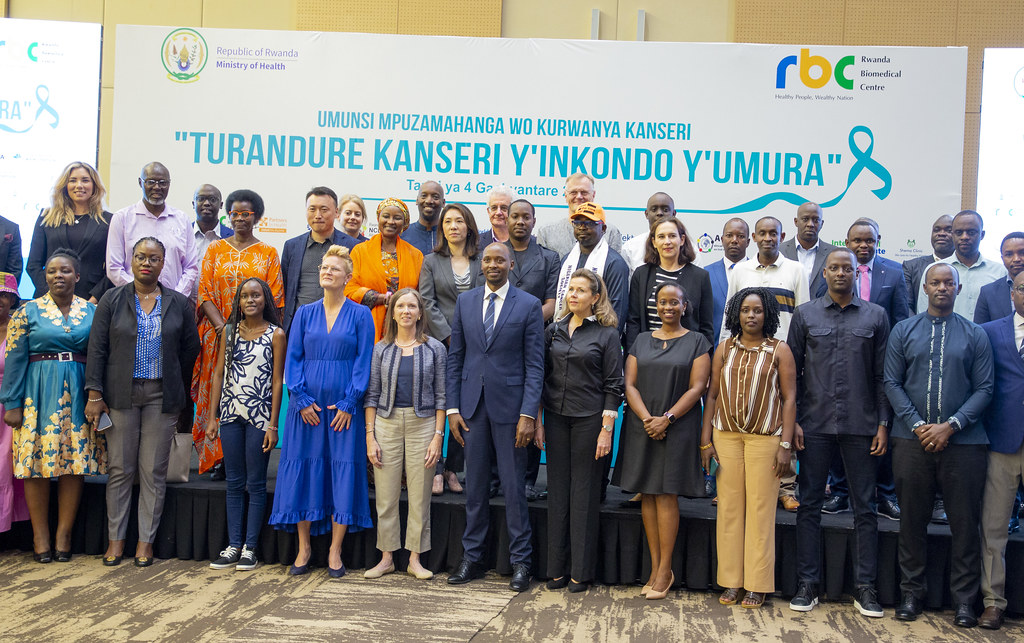Rwanda NGOs Forum on HIV/AIDS and Health Promotion joined the rest of the world to raise awareness about different types of cancer, their early detection, prevention and treatment.
The celebration of World Cancer Day in Rwanda was marked by two main events including a “Cervical Cancer Elimination Symposium” on 4th February 2023, and the “Kigali bimonthly Car Free Day” sporting activities on 5th February 2023.
On 4th February 2023, to mark World Cancer Day, the Ministry of Health in collaboration with Rwanda Biomedical Center and its partners, organized a Symposium on Cervical Cancer to share new evidence on cervical cancer and the progress that has been made towards its elimination.
In his opening remarks at the Symposium, the Minister of Health Dr Nsanzimana Sabin, noted that although cervical cancer is still a burden, Rwanda has made progress towards eliminating it and emphasized on the country’s commitment to investing in cervical cancer prevention and elimination by 2030.
“I urge the Rwandan population, especially girls under the age of 15, to be vaccinated against HPV and women over the age of 35 to be screened as early as possible” He stated.
Cervical cancer remains the second leading cancer in Rwanda, with an estimated 1,229 new cases and 829 deaths in 2020. However, data from the National Cancer Registry shows that in 2020, 617 new cases of cervical cancer were diagnosed in Rwanda, representing 50% of the expected incidence, and around half of these were at late stages (stage 3 and 4).
On 5th February 2023, Rwanda NGOs Forum joined the car-free day event which was attended by the Minister of Health Dr. Nsanzimana Sabin, the Minister of Sports Mrs. Munyangaju Memosa Aurore, the Minister of Gender and Family Promotion Professor Bayisenge Jeannette, the Mayor of Kigali Mr. Rubingisa Prudence, the Director General of RBC Professor Claude Mambo Muvunyi, other partners and residents of Kigali City in a walk to raise awareness on cervical cancer prevention and control.
Cancer prevention is the most cost-effective and long-term intervention to control cancer; According to the World Health Organization, 40% of cancer types are preventable through avoiding exposure to known risk factors.




